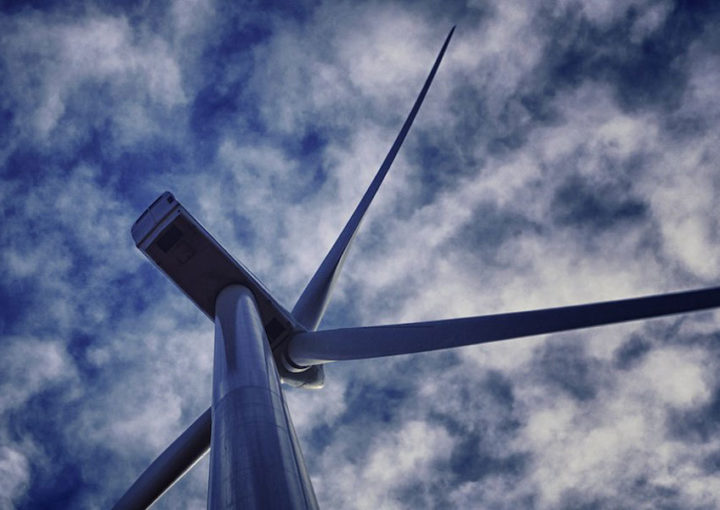Energy and climate - the Donald Rumsfeld dimension
Knowing the knowns and unknowns of climate and energy
By Richard Black
Share
Last updated:
Richard Black, ECIU Director
Few issues come more heavily laden with both implications and baggage than energy and climate change.
The picture laid out by climate scientists is not an appetising one: continuing to increase our use of fossil fuels means running a progressively greater and greater risk of triggering climatic changes that will shape the future in ways that our grandchildren will probably not appreciate. Yet cutting back on greenhouse gas emissions at the scale scientists recommend means making profound changes in the way we run our economy, with implications for competitiveness and prosperity.
To compound the issues further, neither climate scientists nor energy economists can forecast the future with certainty. We have to make choices without knowing when or even if a threshold will be passed that triggers irreversible melting of the Greenland ice sheet or the desiccation of the Amazon, and without knowing the relative prices of gas- and solar-generated electricity 10 years hence. Yet because of the time lag built into the climate system, it is impossible to think of leaving energy choices until climate impacts become clear; by then, it would be decades too late.
So without wanting to get too Donald Rumsfeld about it all, we're making decisions in a world of few knowns, many known unknowns, and a strong whiff of unknown unknowns.

When you're faced with the need to make difficult and highly consequential decisions in the middle of a fog, the most sensible initial step is to understand the landscape as well you can.
As the survey results that we're publishing today make clear, there are significant misconceptions among the British public on some key aspects of the climate change and energy landscape.
Two stand out starkly: Britons do not appreciate the strength of the scientific consensus that human activities are the principal cause of modern climate change, nor do they appreciate the strength of their own backing for renewable energy. Only 5% of Britons realise that renewables command about 80% support among their peers; a majority think that the public opposes them.
Finding these misconceptions in Britain is in one sense surprising given our intimate history of involvement in energy and climate issues. Britain played a central role in setting up the Intergovernmental Panel on Climate Change, and still punches above its weight in climate science. It was a pioneer in deriving energy from the atomic nucleus and the movement of wind and waves. Mrs Thatcher was the first Prime Minister of any major country to call for a United Nations convention on climate change. Britain was the first country in the world to pass legislation setting a long-term, legally binding target to reduce greenhouse gas emissions - and it passed by the overwhelming majority of 463 to 3, just six years ago.

But those two major misconceptions are there, nevertheless.
The first carries particular echoes of the past for me. As a science journalist (with BBC World Service) covering the MMR vaccine scare that began in 1998, it was clear that scientific evidence and medical opinion were overwhelmingly behind the vaccine's safety. Somehow, that picture was mistranslated to the public. The consequences for public health were not as serious as they might have been; but even so, children have contracted measles unnecessarily, as a result of mistranslation and thus misinformation.
Our survey shows that almost half of the British public either thinks that the weight of informed scientific opinion is against the conclusion that human activities are the main driver of modern climate change, or that they are roughly split on the issue. Surveys of climate scientists repeatedly show a consensus of 90% and beyond; so once again, we have a mistranslation that carries potentially big consequences.
Any democratic country can only make sensible choices on a given issue if people are properly informed. For Britain, many debates lie ahead, on issues such as energy bills, home insulation, energy technologies, preparation for floods of the future, Britain's international contribution to tackling climate change, and competitiveness. As a nation we will come out stronger in every sense if we root those debates in the evidence we have.
This is at the heart of what the Energy and Climate Intelligence Unit plans to do. We are not scientists, economists or policy experts; our job is not to make the case for or against nuclear power, carbon capture or electric vehicles; we do not run computer models of the Earth's climate or the future global economy. What we can do is to support communicators of all kinds in ensuring that both the evidence and the holes in it are conveyed as clearly and accurately as possible, and so put the debates we need to have in their full context.
Our initial offer is a set of nine Briefings: accurate, accessible, impartial and up-to-date. We also offer a daily newsletter. We'll be adding to that portfolio as we go.
As we welcome you to ECIU, a final word of appreciation must go to our distinguished Advisory Board. Collectively they span a huge range of communities involved in communicating climate change and energy issues, including academia, the Peerage, politics, journalism, medicine, the faith community, the military and civil society. Their expertise will be invaluable; and we are delighted that they have agreed to lend us the benefit of their assembled experience and expertise.
Share